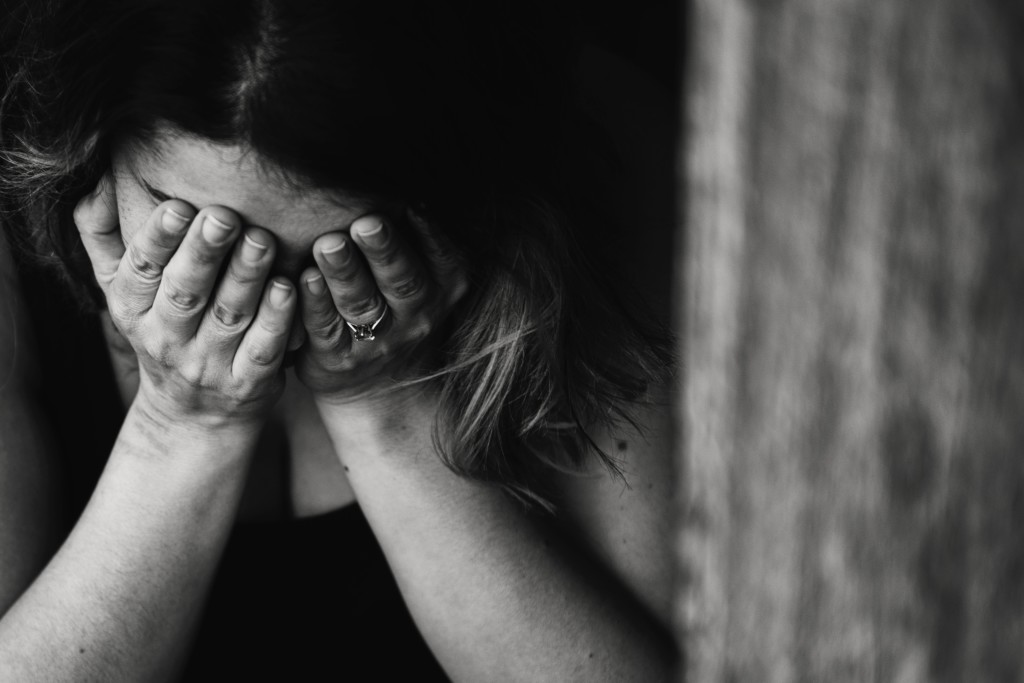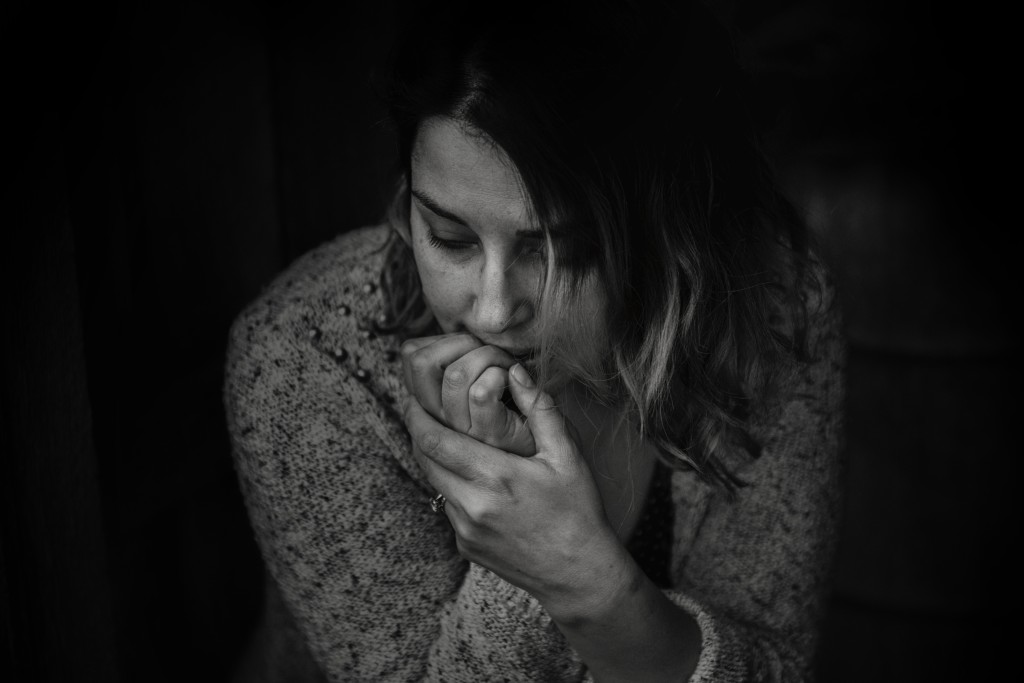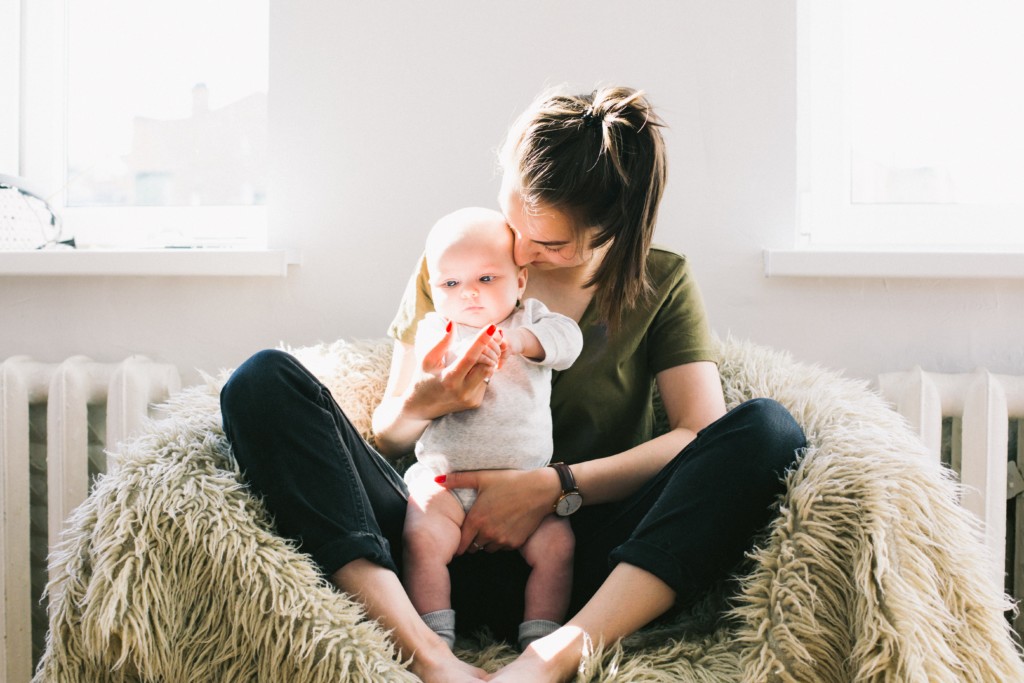In July, Houston Moms Blog shared the tragic news about one of our Texas mommas who passed away after battling Postpartum Depression. We grieve for this mother and continue to hold her family in our prayers. But one thing became very apparent immediately after this tragedy :: we have to keep talking about PPD and other pregnancy related mood disorders.
Mothers Speak Out on PPD
Post Partum Depression is very common :: 1 in 7 moms and 1 in 10 dads suffer from Postpartum Depression. That means, mommas, that you are not alone. You are in the company of thousands of women from all walks of life who did nothing to deserve this diagnosis and are finding their way through it, just like you. While many women are fortunate to recognize the symptoms of PPD, find supports, access them, and receive the help and treatment they need, many do not. From the comments by our Houston moms community, it’s clear that even when women do seek support, many do not actually receive the support they need, and even worse, many have had bad experiences in their PPD journey that has led to distrust and fear…
“I think a major problem is we are all afraid they will want to lock us up or take away our kids. There isn’t much understanding about the range of depression. The first thing they say if you bring it up is do you want to hurt yourself or the baby? Like that’s not going to make a depressed and scared mom defensive and make her shut down at all…”
“I suffered post partum anxiety which is a type of PPD where you are just terrified something bad will happen to your baby all the time. Of course I couldn’t tell anyone because I knew I wasn’t thinking right and in my mind, “If they know I’m crazy they will lock me up and he can’t live without me. Or worse, they’ll think I want to hurt him and take him away forever!” So yeah. Moms with PPD need extra hands to help and extra eyes to watch for safety, but we need to stop acting like it’s some kind of moral failing that deserves punishment and start treating it like a very common hormonal change that needs monitoring, support, and treatment!”
“I went to my first psych appointment for PPD and they literally asked me about all the trauma I’ve ever endured in my life. Gave me a prescription that would work in a month and sent me home. So I’m home, ruminating on the trauma this ‘professional’ brought to the surface without ever receiving any professional help besides a script.”
“It was the hardest thing I’ve ever gone through. If I wouldn’t have had the support system I had from my mom and my husband, I don’t know where I’d be today.”
“Almost a year later I’m still traumatized and dealing with it.”
“The problem in this country is that it is so hard to get help. I am a mother of 3. I have health insurance, good health insurance and my husband makes a decent living. I am 9 months post-partum and have spent the last 7 months trying to find help. I FINALLY found a therapist that takes my insurance and am working on a psychiatrist. But it’s been grueling. I feel like crap and I’m so depressed. Help is NOT easy to find.”
And as one mother shared :: we deserve better.
A Doctor and Mother Speaks Out on PPD
In the midst of these mothers’ heartfelt comments, we discovered an incredible resource for Houston moms – a local doctor and mother, Dr. Kristen Chambliss, who shared invaluable information and resources with us that we would now like to pass on to the community of mothers here in Houston and everywhere – because we have to keep talking about PPD.
At the recent Postpartum Support International Conference which was held in Houston, people shared similar experiences of what happened to them. Kristen said::
“Unfortunately, the barriers to treatment that you have mentioned are all too common. It’s very rare for moms with PPD and postpartum anxiety to want to hurt their babies. That is more common with postpartum psychosis, which occurs less than 1% of the time.”
Moms in other countries suffer from PPD and Perinatal Mood and Anxiety Disorders {PMADs} at similar prevalence rates as the US regardless of differing cultures, nursing care, and family supports. This is why Postpartum Support International is international.
Kristen shared that there are resources out there, but they can be hard to navigate when people are too depressed or anxious to access them and so she broke them down for us ::
- The Postpartum Support International (PSI) website: www.postpartum.net has all kinds of information and resources.
- PSI has a social support network of trained volunteers around the world that offer support and local resources. So if you call in Houston, you will be connected with Houston-based supports.
- PSI also has online support groups and a help line where you can speak in English or Spanish with a volunteer trained in postpartum mood disorders:: 1-800-944-4773
- You can also call PSI and receive referrals for psychotherapists in the Houston area trained in perinatal mood disorders.
- Here in Houston, the Texas Children’s Hospital has a Clinic for Reproductive Psychiatry outpatient program with Med Center and Satellite Clinics.
- In case your OB has told you that you need to go off your psych meds during or after pregnancy, know that there are many meds that are safe to take during pregnancy.
- Can’t get into to Texas Children’s Hospital because of no insurance? PSI has a number your OB can call to consult with a reproductive psychiatrist for free who can tell them what to prescribe you that’s safe during and after pregnancy (if breastfeeding).
- If you have no insurance and you have needs for hospitalization, Ben Taub Hospital has psychiatrists waiting in the ER that can treat you.
- PPD professionals do have to screen for the safety of the mother and the baby, but appropriately trained mental health professionals (MHP) know how to do so in a sensitive manner.
- That said, many folks in mental health do not have training in PPD and PMADs, so reach out to Postpartum Support International to find MHPs in your area who have received the training.
- Although rest, showers, naps, and extra support definitely help and are needed for new moms, professional help is required for PPD and for PMADs
- Once you are in a healthy place, please advocate for other women with PPD and PMADs. Join forces with Postpartum Support International and help women not have experiences like this.
Kristen said ::
It is actually way, way worse for the baby for a mom to be untreated. The mother’s mental health affects the baby’s neural development. If a mom is under-treated during pregnancy, the baby is being exposed to both the depression/anxiety and the medication, so it’s double exposure… Remember, take care of mama and you are taking care of baby.
Kristen was kind enough to share a whole host of other related links and resources which are listed below ::
- When looking for a psychotherapist trained in PMADs {Perinatal Mood and Anxiety Disorders}, women and their significant others should ask what training the provider has had in PMADs. PSI offers training and so does American Society of Reproductive Medicine.
- The Mental Health Association of Greater Houston has a program for moms to learn about perinatal and postpartum mood disorders.
- Texas Children’s Hospital has a Reproductive Psychiatry outpatient program. They have offices in the Med Center, Pearland, Baytown, etc. and accept insurance.
- There are support services through PSI that are specific to Military families and dads through various coordinators.
- PSI also has a Providers section so medical providers like OBs and Advanced Practice Nurses can call a reproductive psychiatrist and schedule free consults to determine what to prescribe patients that is safe during pregnancy. Women can ask their providers to take advantage of this.
- Postpartum doulas are also helpful in preventing PMADs. Some travel throughout Houston and assist families after the birth of a baby with things like laundry, sibling care, meal prep, etc. You can find postpartum doulas on doulamatch.net.
- Nurse-Family Partnership is available for first-time moms who have low income. There are 3 sites in Houston and they visit moms up until kids are 2 years of age.
- Here are some nutritionists for postpartum moms:: https://houstonholistichealthclinic.com/about.htm and https://www.alimillerrd.com/
- Free support groups for postpartum moms are offered at The Woman’s Hospital of Texas. In the Inner Loop, The Center for Postpartum Family Health offers free support groups.
- Other options for moms include prenatal yoga, finding massage therapists with specialties in prenatal massage, and networking with their spiritual communities (if active) to coordinate meal trains through the Meal Train website.
- Kristen sees postpartum families in Clear Lake area: www.kristenchambliss.com
- And lastly, Houston Moms Blog shared a series of posts during Mental Health Awareness Month with information, resources and personal experiences from Houston moms that may be helpful:: Moms’ Minds Matter.
Thank you Dr. Chambliss for sharing all of this with Houston Moms!
Mommas, PPD is treatable and you can be well! We at Houston Moms Blog join Kristen in sharing this information with the hope of helping all families get through Postpartum Depression and other pregnancy related mood disorders, and to prevent this kind of tragedy from happening again.




















